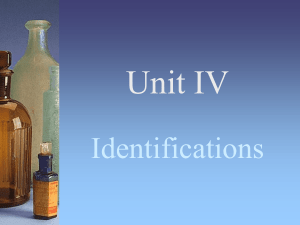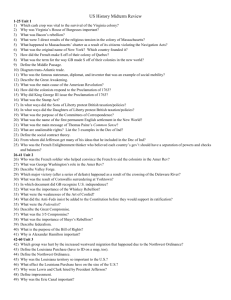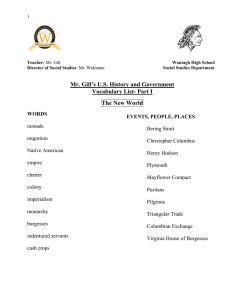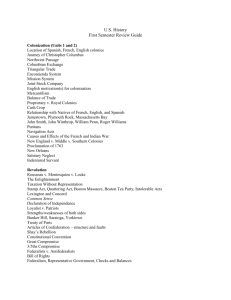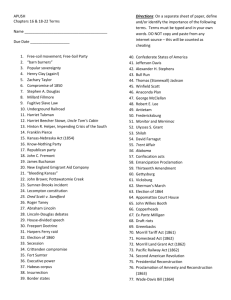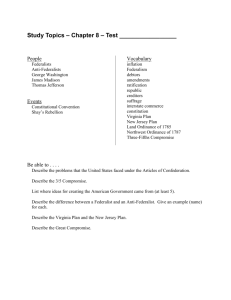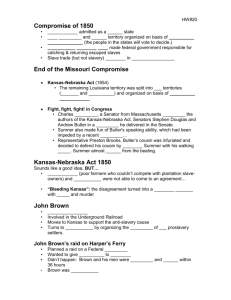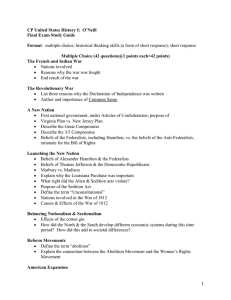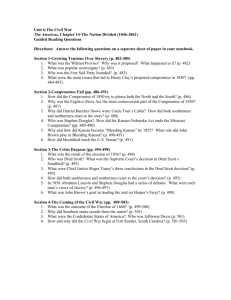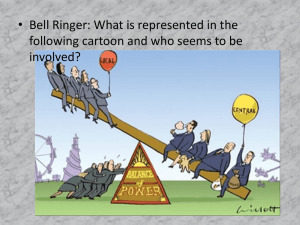4350,"eli whitney accomplishments",2,,,70,http://www.123helpme.com/preview.asp?id=23834,9,115000,"2015-12-19 08:49:24"
advertisement
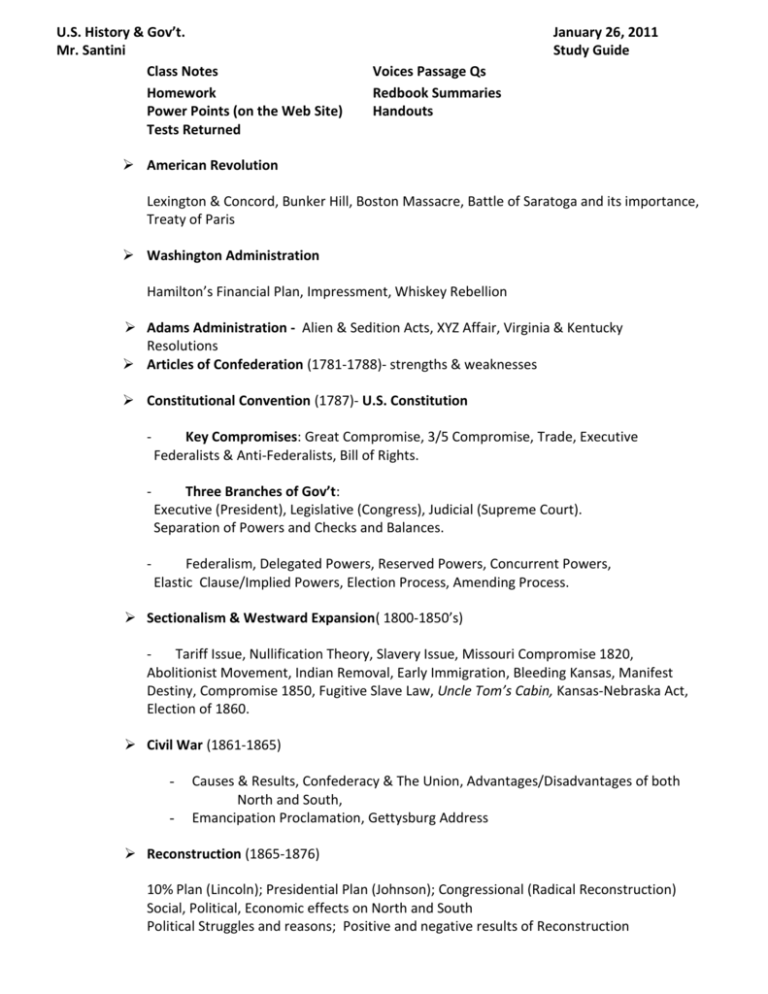
U.S. History & Gov’t. Mr. Santini Class Notes Homework Power Points (on the Web Site) Tests Returned January 26, 2011 Study Guide Voices Passage Qs Redbook Summaries Handouts American Revolution Lexington & Concord, Bunker Hill, Boston Massacre, Battle of Saratoga and its importance, Treaty of Paris Washington Administration Hamilton’s Financial Plan, Impressment, Whiskey Rebellion Adams Administration - Alien & Sedition Acts, XYZ Affair, Virginia & Kentucky Resolutions Articles of Confederation (1781-1788)- strengths & weaknesses Constitutional Convention (1787)- U.S. Constitution - Key Compromises: Great Compromise, 3/5 Compromise, Trade, Executive Federalists & Anti-Federalists, Bill of Rights. - Three Branches of Gov’t: Executive (President), Legislative (Congress), Judicial (Supreme Court). Separation of Powers and Checks and Balances. - Federalism, Delegated Powers, Reserved Powers, Concurrent Powers, Elastic Clause/Implied Powers, Election Process, Amending Process. Sectionalism & Westward Expansion( 1800-1850’s) Tariff Issue, Nullification Theory, Slavery Issue, Missouri Compromise 1820, Abolitionist Movement, Indian Removal, Early Immigration, Bleeding Kansas, Manifest Destiny, Compromise 1850, Fugitive Slave Law, Uncle Tom’s Cabin, Kansas-Nebraska Act, Election of 1860. Civil War (1861-1865) - Causes & Results, Confederacy & The Union, Advantages/Disadvantages of both North and South, Emancipation Proclamation, Gettysburg Address Reconstruction (1865-1876) 10% Plan (Lincoln); Presidential Plan (Johnson); Congressional (Radical Reconstruction) Social, Political, Economic effects on North and South Political Struggles and reasons; Positive and negative results of Reconstruction People and Their Accomplishments Founding Fathers (Alexander Hamilton, George Washington, James Madison), Thomas Jefferson, John C. Calhoun, Henry Clay, Andrew Jackson, Frederick Douglas, Harriet Tubman, Abraham Lincoln, John Deere, Eli Whitney, Dorothea Dix, Elizabeth Cady Stanton, James Buchanan, Robert E. Lee, Ulysses S. Grant, Andrew Johnson, Booker T. Washington Supreme Court Cases - Marbury v. Madison (1803), Gibbons v. Ogden (1824), McCulloch v. Maryland (1819), Scott v. Sandford (1857) Review Terms Northern Colonies Trail of Tears Turning Point of Civil War Southern Colonies Cabinet Military Technology Proclamation of 1763 Westward Expansion Reconstruction Stamp Act Manifest Destiny Radical Reconstruction Boston Massacre Mexican War Carpetbaggers Social Contract Monroe Doctrine Scalawags Declaration of Independence Missouri Compromise Black Codes Common Sense Kansas-Nebraska Act Iron Clad Oath Articles of Confederation Bleeding Kansas 13th, 14th & 15th Amendments Northwest Ordinance of 1787 Dred Scott Decision “40 Acres and Mule” Great Compromise Emancipation Proclamation Freedmen’s Bureau Federalist Papers Compromise of 1850 Sharecroppers & Tenant Farmers Federalist Bleeding Kansas Ku Klux Klan & Enforcement Acts Anti-Federalist Gettysburg Credit Mobilier & Whiskey Ring Scandals Preamble North’s Advantages Panic of 1873 Legislative Branch South’s Advantages Election of 1876 Executive Branch Judicial Branch Redemption & Home Rule Alexander Hamilton Popular Sovereignty New South Washington’s Farewell Address Andrew Jackson Jim Crow Laws Louisiana Purchase Spoils System Bill Of Rights War of 1812 Electoral College Industrial Revolution Amendment Process Gibbons v. Ogden Marbury v. Madison Sectionalism Judicial Review Anaconda Plan

